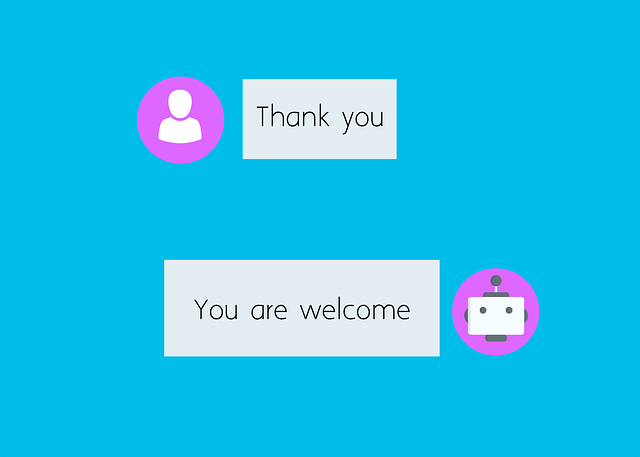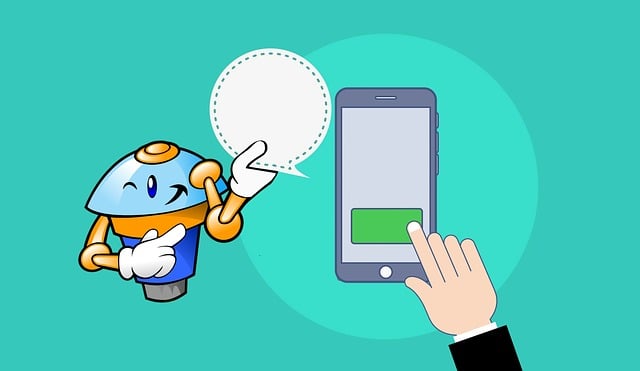AI chatbots have transformed human-computer interaction across sectors like customer service, healthcare, and education, offering instant 24/7 support and personalized interactions. With advancements in NLP and machine learning, these virtual assistants streamline processes, from FAQs to booking appointments and learning. Future prospects include more sophisticated human-like conversations, revolutionizing information access and services, while addressing challenges such as accuracy, privacy, security, and algorithmic bias is crucial for unlocking their full potential.
“The world of online communication is undergoing a silent revolution with the rise of AI chatbots. These virtual assistants are transforming how we interact with technology, offering unprecedented benefits across industries. From customer service to content creation, chatbots are enhancing efficiency and user experiences. However, challenges remain in ensuring their reliability and ethical use.
This article explores the rise of AI chatbots, their inner workings, and the profound impact they’re having. We delve into the benefits they bring while also examining the complexities, providing a comprehensive guide through the current chatbot landscape. Additionally, we glimpse into the future, predicting the evolution of this technology.”
- The Rise of AI Chatbots: How They Work and Their Impact
- Benefits and Challenges: Navigating the AI Chatbot Landscape
- Future Prospects: The Evolution of Online Chatbot Technology
The Rise of AI Chatbots: How They Work and Their Impact

The rise of AI chatbots has been a significant development in recent years, transforming the way we interact with technology. These intelligent virtual assistants leverage advanced natural language processing (NLP) and machine learning algorithms to understand and respond to human queries in real-time. The ability to engage in conversational interactions has made chatbots increasingly popular across various industries, from customer service to healthcare and education.
AI chatbots are changing the game by providing instant, 24/7 support, enhancing user experiences, and streamlining processes. They can handle a multitude of tasks, from answering frequently asked questions to booking appointments, making recommendations, and even offering personalized learning experiences. As chatbot technology continues to evolve, we can expect even more sophisticated interactions that feel natural and human-like, redefining the way we access information and services online.
Benefits and Challenges: Navigating the AI Chatbot Landscape

The rise of AI chatbots has brought about a plethora of benefits for users worldwide, revolutionizing communication and access to information. These virtual assistants offer 24/7 availability, instant responses, and personalized interactions, enhancing user experiences across various sectors. From customer service to healthcare, education, and entertainment, chatbots are streamlining processes, reducing costs, and improving efficiency. They can handle a multitude of tasks, from answering simple queries to providing complex support, making them invaluable tools for businesses aiming to enhance their digital presence.
However, navigating the AI chatbot landscape also presents challenges. Ensuring accurate and contextually appropriate responses is a significant hurdle; chatbots often struggle with understanding nuances in human language. Privacy and security concerns are another critical aspect, as users must trust that sensitive information remains confidential. Moreover, maintaining ethical standards and ensuring algorithmic bias-free interactions is an ongoing task for developers. As the field of AI continues to evolve, addressing these challenges will be essential to unlocking the full potential of chatbots and creating a seamless user experience.
Future Prospects: The Evolution of Online Chatbot Technology

As we move further into the digital age, the future prospects of chatbot technology are both exciting and promising. Online chatbots are evolving rapidly, becoming more sophisticated with each passing day. Advanced machine learning algorithms enable them to understand natural language better, process complex queries, and provide more accurate responses. This evolution is set to transform various industries, from customer service to healthcare, by offering personalized and efficient interactions.
The integration of artificial intelligence into chatbots opens up new possibilities for their development. With improved context awareness and the ability to learn from user interactions, future chatbots will be able to engage in more human-like conversations. This evolution will not only enhance user experiences but also enable chatbots to take on more diverse roles, such as virtual assistants, educational tools, and even creative partners.
AI chatbots have rapidly evolved, transforming online interactions and offering unprecedented benefits. From enhanced customer service to personalized assistance, these virtual assistants are revolutionizing industries. However, challenges remain, including ethical considerations and data privacy concerns. As technology advances, future prospects suggest even more sophisticated chatbots, shaping a new era of human-machine interaction. The ongoing development of AI chatbot technology promises a bright future, where efficient and intuitive communication is at our fingertips.
